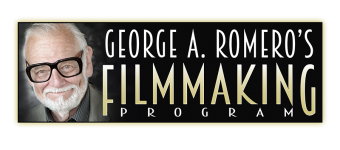- Education Topics
- Achievement Gap
- Alternative Education
- American Education Awards
- Assessment & Evaluation
- Education during COVID-19
- Education Economics
- Education Environment
- Education in the United States during COVID-19
- Education Issues
- Education Policy
- Education Psychology
- Education Scandals and Controversies
- Education Reform
- Education Theory
- Education Worldwide
- Educational Leadership
- Educational Philosophy
- Educational Research
- Educational Technology
- Federal Education Legislation
- Higher Education Worldwide
- Homeless Education
- Homeschooling in the United States
- Migrant Education
- Neglected/Deliquent Students
- Pedagogy
- Sociology of Education
- Special Needs
- National Directories
- After School Programs
- Alternative Schools
- The Arts
- At-Risk Students
- Camps
- Camp Services
- Colleges & Universities
- Counties
- Driving Schools
- Educational Businesses
- Financial Aid
- Higher Education
- International Programs
- Jewish Community Centers
- K-12 Schools
- Language Studies
- Libraries
- Organizations
- Preschools
- Professional Development
- Prom Services
- School Assemblies
- School Districts
- School Field Trips
- School Health
- School Supplies
- School Travel
- School Vendors
- Schools Worldwide
- Special Education
- Special Needs
- Study Abroad
- Teaching Abroad
- Volunteer Programs
- Youth Sports
- For Schools
- Academic Standards
- Assembly Programs
- Blue Ribbon Schools Program
- Educational Accreditation
- Educational Television Channels
- Education in the United States
- History of Education in the United States
- Reading Education in the U.S.
- School Grades
- School Meal Programs
- School Types
- School Uniforms
- Special Education in the United States
- Systems of Formal Education
- U.S. Education Legislation
- For Teachers
- Academic Dishonesty
- Childcare State Licensing Requirements
- Classroom Management
- Education Subjects
- Educational Practices
- Educational Videos
- Interdisciplinary Teaching
- Job and Interview Tips
- Lesson Plans | Grades
- Professional Development
- State Curriculum Standards
- Substitute Teaching
- Teacher Salary
- Teacher Training Programs
- Teaching Methods
- Training and Certification
- For Students
- Academic Competitions
- Admissions Testing
- At-Risk Students
- Career Planning
- College Admissions
- Drivers License
- Educational Programs
- Educational Television
- Educational Videos
- High School Dropouts
- Higher Education
- School Health
- Senior Proms
- Sex Education
- Standardized Testing
- Student Financial Aid
- Student Television Stations
- Summer Learning Loss
Douglas Education Center

Basic Information
Address: 130 7th Street
Monessen, PA 15062
Phone Number: 1-800-413-6013
Fax Number: 724-684-7463
Email: Admissions-All@dec.edu
President: Jeff Imbrescia
Additional Information
School Type: Career School
Degrees Offered:
Associates Degree
School Setting:
DEC is a small career school set within the small town of Monessen, PA.
School Size: Entire Campus - 9 Buildings - Appx 150 - 225 students
Student/Teacher Ratio: 12-1
School Holidays: New Years, Spring Break, Easter, July 4, Fall Break, Thanksgiving, Christmas
Housing Availability:
bdihousing.com
Housing Type: Apartments, Houses with shared spaces
Tuition:
$43,715
Financial Aid:
Yes
Parking Spaces/Availability:
Street City Parking
Admissions Requirements:
High School Diploma or GED, Wonderlic Test
Application/Transfer Deadlines:
Open Enrollment
International Students:
Yes
Mission Statement:
The mission of Douglas Education Center is twofold. Our first responsibility is to provide students with a quality education that will develop the attitudes, skills and techniques necessary to enter and succeed in their chosen field of study. Our second responsibility is to provide prospective employers with well-trained personnel. The curricula of Douglas Education Center are designed to maintain high standards of performance upon which these future employers can depend. Douglas Education Center has the obligation to create an educational atmosphere that will not only foster the highest standards of excellence in all students, but also help these students develop an awareness of social responsibility and ethical behavior.
Philosophy/Belief Statement:
The philosophy of DEC, established in 1904, was developed through years of educational experience and knowledge.
The core of this philosophy is the belief that students of diverse ages and backgrounds can work together effectively in the classroom, thereby growing in skill, knowledge and maturity beyond the normal expectations, to achieve any goal they may desire.
The educational programs at DEC are oriented toward meeting the needs of its students by developing professionalism, leadership, and technical, interpersonal and communication skills.
DEC offers an understanding, friendly and considerate environment where students feel welcome and cared for by the administration and faculty. At DEC, students are thought of as individual personalities and are, therefore, treated as individuals. The school is concerned with the human element and strives to develop the potential of each student. This is done by determining the strengths and weaknesses of each student and the type and amount of assistance he or she needs.
Social Media:





